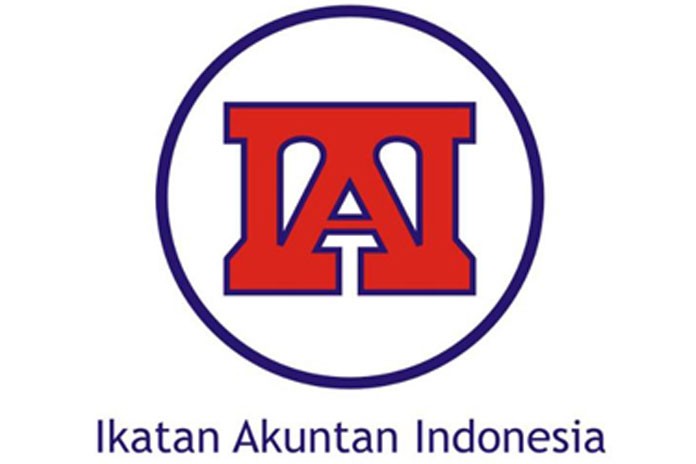EFEK MODERASI KELEMAHAN PENGENDALIAN INTERNAL ATAS PENGARUH PENGELUARAN PEMERINTAH TERHADAP INDEX PEMBANGUNAN MANUSIA (STUDI PADA PEMERINTAH DAERAH KABUPATEN DAN KOTA SE-PROVINSI BANTEN)
Abstract
Abstract
This research was aimed to analyze the moderating effect of the internal control weakness on the impact of of government expenditure on human development index. Human resources quality was considered as the important factor for the growth of a region. The optimally government expenditure could give positive impact on the human resource quality. Otherwise the ineffective government expenditure was expected to giv negative impact on human resources development. This research was conducted over the financial data released by the municipal government in Banten Province for the period of 2009-2012. The analysis shows that government expenditure influences the human development index. The weakness of internal control does not show the moderating effect over the influence of government expenditure on human development index.
Keywords: Human development index, Internal Control and Government Expenditure
Abstrak
Penelitian ini bertujuan untuk menganalisis pengaruh moderasi dari kelemahan pengendalian internal terhadap dampak pengeluaran pemerintah terhadap indeks pembangunan manusia. Kualitas sumber daya manusia dianggap sebagai faktor penting untuk pertumbuhan suatu daerah. Pengeluaran pemerintah yang optimal dapat memberikan dampak positif pada kualitas sumber daya manusia. Kalau tidak, pengeluaran pemerintah yang tidak efektif diperkirakan akan berdampak negatif terhadap pengembangan sumber daya manusia. Penelitian ini dilakukan atas data keuangan yang dirilis oleh pemerintah kota di Provinsi Banten untuk periode 2009-2012. Analisis menunjukkan bahwa pengeluaran pemerintah mempengaruhi indeks pembangunan manusia. Kelemahan pengendalian internal tidak menunjukkan efek moderasi atas pengaruh pengeluaran pemerintah pada indeks pembangunan manusia.
Kata Kunci: Indeks pembangunan manusia, Kontrol Internal, dan Pengeluaran Pemerintah
Full Text:
PDFReferences
Akcay, S. (2006). Corruption and Human Development. Cato Journal, Vol. 26 (1) : 29-49.
Amponsah, E. N. (t.thn.). Public Spending and Economic Growth:Evidence from Ghana. Development Southern Africa, Vol. 26 (3) : 477-499.
Anand, S., & Sen, A. (2000). The Income Compnent of The Human Development Index. Journal of Human Development, Vol.1 (1): 83-106.
Blankenau, W. F., Simpson, N. B., & Tomijanovich, M. (2007). Public Education Expenditure, Taxation, and Growth: Lingking Data to Theory. AEA PAPERS AND PROCEEDING, (hal. 393-398).
Creedy, J., Li, M. S., & Moslehi, S. (2011). The Government Expenditure: Economic Condition and Preference. Economic Inquiry, Vol.49. No. 1 : 94-107.
Dao, M. Q. (2012). Government Expenditure and Growth in Developing Countries. Progress in Development Studies, Vol. 12 (1) : 77-82.
Devereux, M. B., Head, A. C., & Lapham, B. (2000). Governement spending and Welfare with Return to specialization. Scandinavian Journal of Economics, Vol 102 (4):547-561.
Downs, A. (NY). An Economi Theory of Democracy. Boston: Addison Wesly.
Fan, S., Hazell, P., & Sukhadeo, T. (2000). Governement Spending, Growth and Poverty in Rural India. American Journal Agriculture Economics, Vol 82 (4) 1038-1051.
Khalifa, Y., & Al-Yousif, Y. K. (2008). Education Expenditure and Economic Growth: Some Empirical Evidence from the GCC Countries. The Journal of Developing Areas, Vol. 42 (1) :69-80.
Mauro, P. (1995). Corruption and Growth. Quarterly Journal of Economics, Vol. 110 (August) :681-712.
Mauro, P. (1998). Corruption and the Composition of government Expenditure. Journal of Public Economics, Vol 69: 263-279.
Moeler, R. (2009). Brink's Modern Internal Auditing, A Common Body of Knowledge. New Jersey: John Wiley & Sons.
Musila, J. W., & Belassi, W. (2004). The Impact of Eduaction Expenditures on Economic Growth in Uganda : Evidence from Time Series Data. The Journal of Developing Areas, Vol 38 (1):123-133.
Musila, J. W., & Belassi, W. (2004). The Impact of Education Expenditure on Economic Growth in Uganda : Evidence from Time Series Data. The Journal of Developing Areas, Vol. 38 (1):123-133.
Neumayer, E. (2001). The Human Development Index and Sustainability - a Constructive Proposal. Ecological Economic, Vol 39 : 101-114.
Noorbakhsh, F. (1998). The Human Delopment Index: Some Technical Issues and Alternative Indices. Journal of International Development, Vo. 10 : 598-605.
Oates, W. E. (1968). The Theory of Public finance in Federal System. The Canadian Journal of Economics, Vo.1, No.1 : 37-54.
Oluwatubi, S. O., & Ogunrinola, I. O. (2011). Government Expenditure on Human Capital Development:Implications for Economic Growth in Nigeria. Journal of Sustainable Development, Vol. 4 (3):72-80.
Parisi, F. (2003). Political Coase Theorem. Public Choice, Vo. 115, (1/2) :1-36.
Plumer, T., & Martin, C. W. (2003). Democracy, Government Spending, and Economic Growth: A Political-Economic Explanation of the Barro-Effect. Public Choice, Vol. 117, No. 1/2, pp. 27-50.
Posner, R. A. (1974). Theories of Economic Regulation. The bell Journal of Economics and Management Science, Vol 5(2) :335-358.
Scully, G. W. (2001). Government Expenditure and Quality of Life. Public Choice, Vol 108, (1/2 ):123-145.
ekker, H., & Van Goor, A. R. (2000). chain management and management accounting: A case study of activity-based costing. International Journal of Logistics, Research and Applications, 3, 41–52.
Easterby-Smith, M. (1997). Disciplines of organizational learning: Contributions and critiques. Human Relations, 50(9): 1085-1113.
Ghozali, Imam. (2008). Metode alternatif dengan partial least squre (PLS). Badan penerbit-UNDIP, Semarang.
Ireland, R. D., Hitt, M. A., & Vaidyanath, D. (2002). Alliance management asa source of competitive advantage. Journal of Management, 28(3),413–446.
Ittner, C. D., Larcker, D. F., Nagar, V., & Rajan, M. V. (1999). Supplierselection, monitoring practices, and firm performance. Journal of Accounting and Public Policy, 18, 253–281.
Kajuter, P., & Kulmala, H. I. (2005). Open book accounting in networks: Potential achievements and reasons for failures. Management Accounting Research, 16, 179–204.
Moller, Windolph & Isbruch. F (2011). The effectofrelationalfactorsonopen-bookaccountingandinter-organizationalcostmanagementinbuyer –supplierpartnerships: Journal ofPurchasing&SupplyManagement, 17, 121–131.
Mouritsen, J., Hansen, A., & Hansen, C. (2001). Inter-organizationalcontrols and organizational competencies: Episodes around targetcostmanagement/functional analysis and open book accounting. Management Accounting Research, 12, 221-244.
Mentzer, J. T., Min, S., & Zacharia, Z. G. (2000). nature of interfirmpartnering in supply chain management. Journal of Retailing, 76,549–568.
Sugiyono. 2012. Memahami Penelitian Kualitatif. Bandung: ALFABETA
Tu, Q., Vonderembse, M. A., Ragu-Nathan, T. S., & Sharkey, T. W. (2006). Absorptive capacity: Enhancing the assimilation of time-based manufacturing practices. Journal of Operations Management, 24(5), 692 710.
Uddin, & Hassan, R (2011). Conceptual Framework of Interorganizational Cost Management: a Critical Analysis. ASA University Review, 5, 2.
Van der Meer-Kooistra, J., & Vosselman, E. (2000). Management control ofinterfirm transactional relationships: The case of industrialrenovation and maintenance. Accounting, Organizations and Society,25, 51–77.
Vickery, S. K., Jayaram, J., Droge, C., & Calatone, R. (2003). The effects of an integrative supply chain strategy on customer service and financial performance: An analysis of direct versus indirect relationships.Journal of Operations management, 21, 523–539.
Zahra, S. A., & George, G. (2002). Absorptive capacity: A review, reconceptualization, and extension. Academy of Management Review,27, 185-203.
Windolph, &Moeller (2012)Open-book accounting: Reason for failure of inter- firm cooperation: Management Accounting Research, 23, 47– 60.
DOI: http://dx.doi.org/10.35448/jrat.v9i1.4286
Refbacks
- There are currently no refbacks.
pISSN 1979-682X eISSN 2528-7443
Jurnal Riset Akuntasi Terpadu (JRAT) is licensed under a Creative Commons Attribution 4.0 International License







